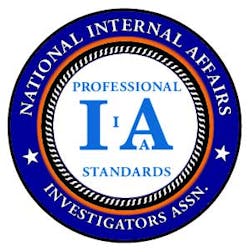The Internal Affairs Investigator
One of the many questions that a Police administrator must decide is, "Who will be the internal affairs investigator?" The decision must take into account the best interests of the department, chief/sheriff, city/county, and the employees. The issue is, should just anyone be chosen to do this specific job? Let's look at some trends and customs.
The first that comes to mind is when the chief/sheriff of the agency decides to be the IA investigator himself. Some believe the executive officer should handle complaints on officers, particularly in small departments. This approach is problematic in many ways. Internal affairs investigations take an extraordinary amount of time to complete. Executives have too many other problems to work besides IA complaints. It puts them in the awkward position of being both investigator and making an unbiased decision as to punishment to be dealt out. It may lead the officers within the department to a belief of unfairness.
The officer's supervisor is another problem choice. He may not be a bad choice if the matter is a policy violation that can be handled easily. But there are time restraints, biases, and the question of the fairness of the investigation. If the matter is of such a serious violation that raises it to an internal affairs level, a disinterested officer should handle the investigation.
Is a special operations team member a good choice? The officer might have to review an action where fellow team members are involved. Also, they may become the focus of an investigation. The nature of SWAT operations makes complaints common. Understand that most complaints brought to bear on a SWAT team are unfounded. Could a member of the team look at a use-of-force issue objectively? What would the media and public say? They may believe the investigator would lean towards the use of force with a biased opinion.
What about a hostage negotiator? They have good people skills. They are trained in questioning and reading responses. They are rarely involved in shooting incidents or, use of force.
However, look at this in another light. What is the negotiator's ultimate job? They are charged with the responsibility to end a confrontation, without the use of force, by negotiation with the suspect. Having this in mind, can they be unbiased?
I have found the negotiator believes that any matter can be settled with time and effort. Rightly so, in the majority of cases those officers undertake. In most cases officers must make decisions immediately without the benefit of time. Internal affairs investigators cannot take that element away from the officer. I teach in use-of-force training that during a crisis situation there comes a time that the situation must be brought to a close. This reinforces the fact that officers do not have the luxury of lengthy negotiations.
Next in mind is a detective supervisor. This would be a good choice, assuming they would have the time to complete it. They can be delegated and released from other duties for a period of time. However, in a serious situation this officer's time may be consumed with assisting other agencies on the criminal aspect or completing it themselves. They are already delegated to other duties at the time of a serious incident. They are trained investigators knowing how to conduct an investigation and complete it fairly. I have been there and done that.
A fairly new idea is to assign the position to the training officer. An officer in this position would be in the position to put other duties aside for the period of time needed to complete the investigation. In most cases they will not be involved in the incident, not supervising the employee, and have the ability to look at all aspects objectively.
Policy is most often written and training is given at this level. Training officers are experienced in all aspects of police work and can handle an investigation. They are removed from the normal day-to-day operations of a police department. They most often have a variety of experience in all fields of police work.
Should any of these officers be trained in internal affairs? Should they be afforded the opportunity to take the training and even the position? If the shoe fits within your organization, by all means put them to work. All positions should be re-evaluated constantly to insure the proper person is in their field of expertise. Keep in mind the importance of this position. Internal affairs officers can take the livelihood of an officer and their dignity. They are a valuable asset if used properly.
